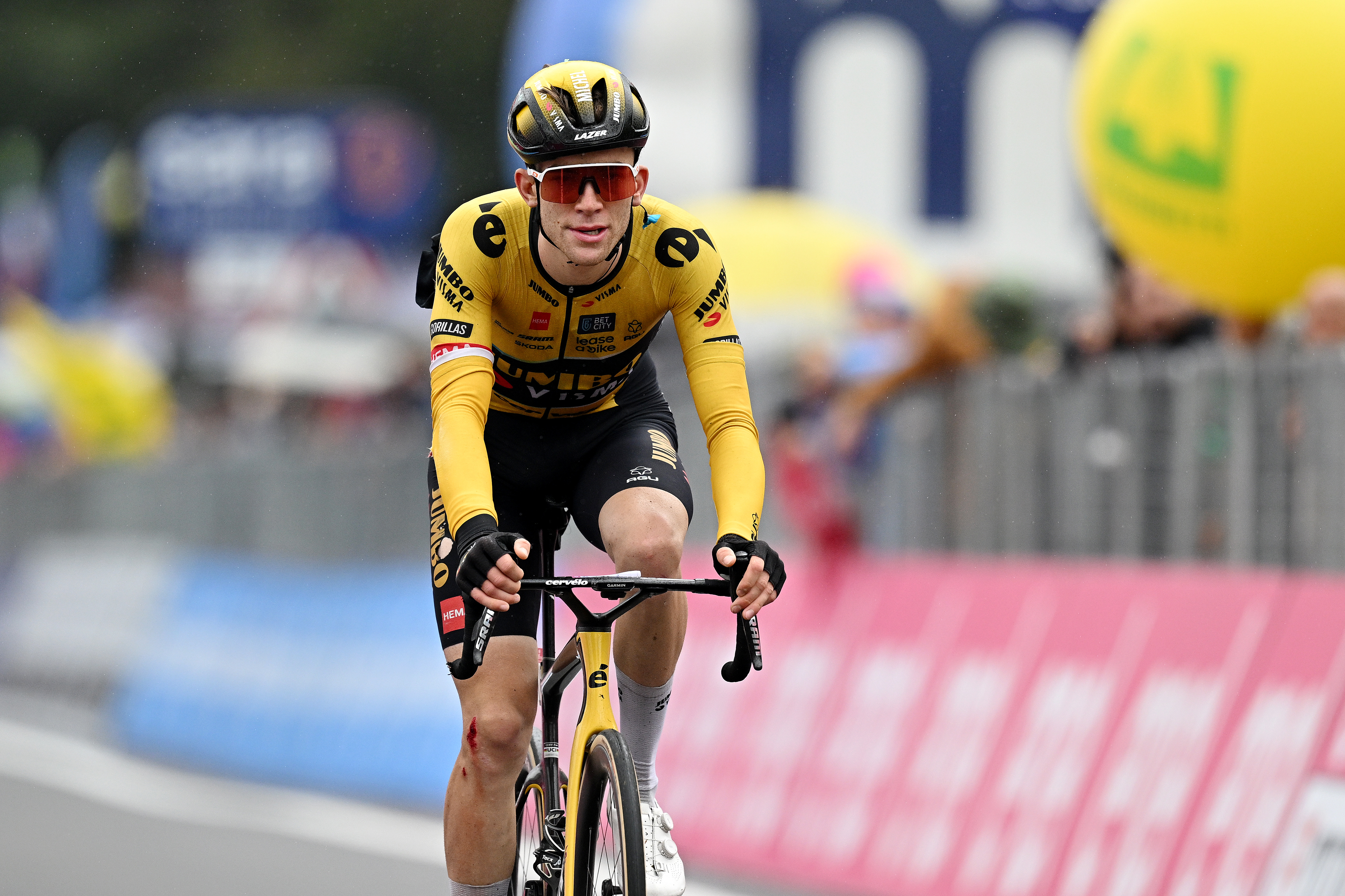
German cyclist Michel Hessmann has been provisionally suspended by his team, Jumbo-Visma, after he returned a positive-anti-doping test result.
The squad announced the news on Wednesday, saying that the test was conducted in June, and revealed the presence of diuretics. Jumbo-Visma have since made the 22-year-old inactive until more details are known.
In a statement shared on Twitter, Jumbo-Visma wrote: “Today we have been informed of a positive anti-doping test result of our rider Michel Hessmann.
“It concerned an out-of-competition control on 14 June in Germany. The detected product is a diuretic medicine. We await the results of further investigation. Michel has been suspended by the team until further notice.”
Diuretics are used to treat several conditions, such as heart failure, liver disease and types of kidney disease. They work by helping the body release sodium and water, passing it through urine. While they are not performance-enhancing by themselves, they are known to contribute to rapid weight loss.
Diuretics are on the World Anti-Doping Agency’s (WADA) list of prohibited substances, and are banned both in and out of competition.
Hessmann’s positive test came two weeks after he took part in the Giro d’Italia, where he helped his team-mate Primož Roglič to victory. He also rode Liège-Bastogne-Liège, the Volta Ciclista a Catalunya and Strade Bianche earlier in the year, and participated in last month’s Czech Tour since the anti-doping control.
Hessman, who is a product of Jumbo-Visma's development team, is yet to comment on his positive test result.
The news follows a series of recent high-profile anti-doping positives in cycling. In June, Belgian rider Shari Bossuyt tested positive for the banned substance Letrozole and was made "non-active" by her Canyon-SRAM team. Bossuyt’s positive result came over a year after her compatriot, cyclo-cross rider Toon Aerts, returned a sample containing the same product.
In 2022, there were 29 cases of alleged doping recorded in cycling, according to figures released by the anti-doping union Movement for a Credible Cycling (MPCC). This included one case at WorldTour level, after two of Nairo Quintana’s blood samples revealed the presence of tramadol, a painkiller banned by the UCI.







